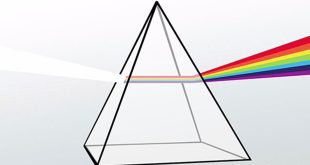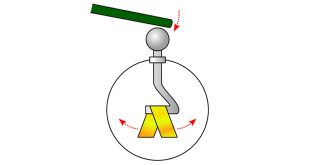Question: While looking up at the sky, how can you distinguish between a planet and a star? Answer: While looking up at the sky, we can distinguish between a planet and a star by observing their twinkling nature. Stars twinkle at night sky whereas planets do not. Question: What is the …
Read More »Refraction and Dispersion of Light: 8 CBSE
Question: What do you mean by refraction of light? In which direction will light bend when travelling from an optically rarer medium to an optically denser medium? Answer: The bending of light as it passes from one transparent medium to another is called refraction. It occurs because light travels at lower …
Read More »NCERT 8th Class (CBSE) Science: Chemical Effects of Electric Current
Question: What is electric current? Answer: The flow of electrons constitutes an electric current. Question: How is electronic current different from conventional current? Answer: The flow of electronic current is from negative to positive whereas the flow of conventional current is from positive to negative. Question: Differentiate between conductors and insulators. Answer: Difference is as …
Read More »NCERT 8th Class (CBSE) Science: Light – Quiz
NCERT 8th Class (CBSE) Science: Light – Quiz 26 Multiple Choice Questions related to NCERT 8th Class (CBSE) Science: Light – Quiz: When a beam of light falls on a smooth surface it gets reflected in one direction. This is called regular reflection. When a beam of light falls on …
Read More »NCERT 8th Class (CBSE) Science: Light
Question: What is reflection of light? Answer: The objects send back the light which falls on them. This sending back of light by objects is called reflection of light. Question:What is the second law of reflection? Answer: The second law of reflection states that the incident ray, the normal and the …
Read More »NCERT 8th Class (CBSE) Science: Some Natural Phenomena – Quiz
NCERT 8th Class (CBSE) Science: Some Natural Phenomena – Quiz 28 Multiple Choice Questions related to NCERT 8th Class (CBSE) Science: Some Natural Phenomena – Quiz: Static electricity consists of electrical charges that do not flow. There are two kinds of charges – positive and negative. When two bodies are rubbed together, …
Read More »NCERT 8th Class (CBSE) Science: Some Natural Phenomena
Question: Why does a comb rubbed on hair attract pieces of paper? Answer: The comb on rubbing became gets electrically charged and attract pieces of paper. This is called electrostatic force. Question: Under what conditions do charges attract or repel each other? Answer: Like charges repel and unlike charges attract each other. …
Read More »NCERT 8th Class (CBSE) Science: Sound
Question: How is sound produced? Answer: Sound is produced by rapid to-and-fro movements called vibrations. Question: Distinguish between infrasonic and ultrasonic. Answer: Difference is as follows: Question: What do you mean by time period of a vibrating object? Answer: The time taken for one complete vibration or oscillation is called its time period. Question:What is …
Read More »NCERT 8th Class (CBSE) Science: Sound – Quiz
NCERT 8th Class (CBSE) Science: Sound – Quiz 26 Multiple Choice Questions related to NCERT 8th Class (CBSE) Science: Sound – Quiz: Sound is produced by rapid to and fro movements, called vibrations. The maximum distance to which an oscillating or vibrating object moves from its central position is called amplitude. …
Read More »NCERT 8th Class (CBSE) Science: Conservation of Plants and Animals – Quiz
NCERT 8th Class (CBSE) Science: Conservation of Plants and Animals – Quiz 22 Multiple Choice Questions related to NCERT 8th Class (CBSE) Science: Conservation of Plants and Animals – Quiz: Ecosystem consists of all the plants, animals and microorganisms in an area, along with all the non-living components, such as climate, …
Read More » Class Notes NCERT Solutions for CBSE Students
Class Notes NCERT Solutions for CBSE Students





